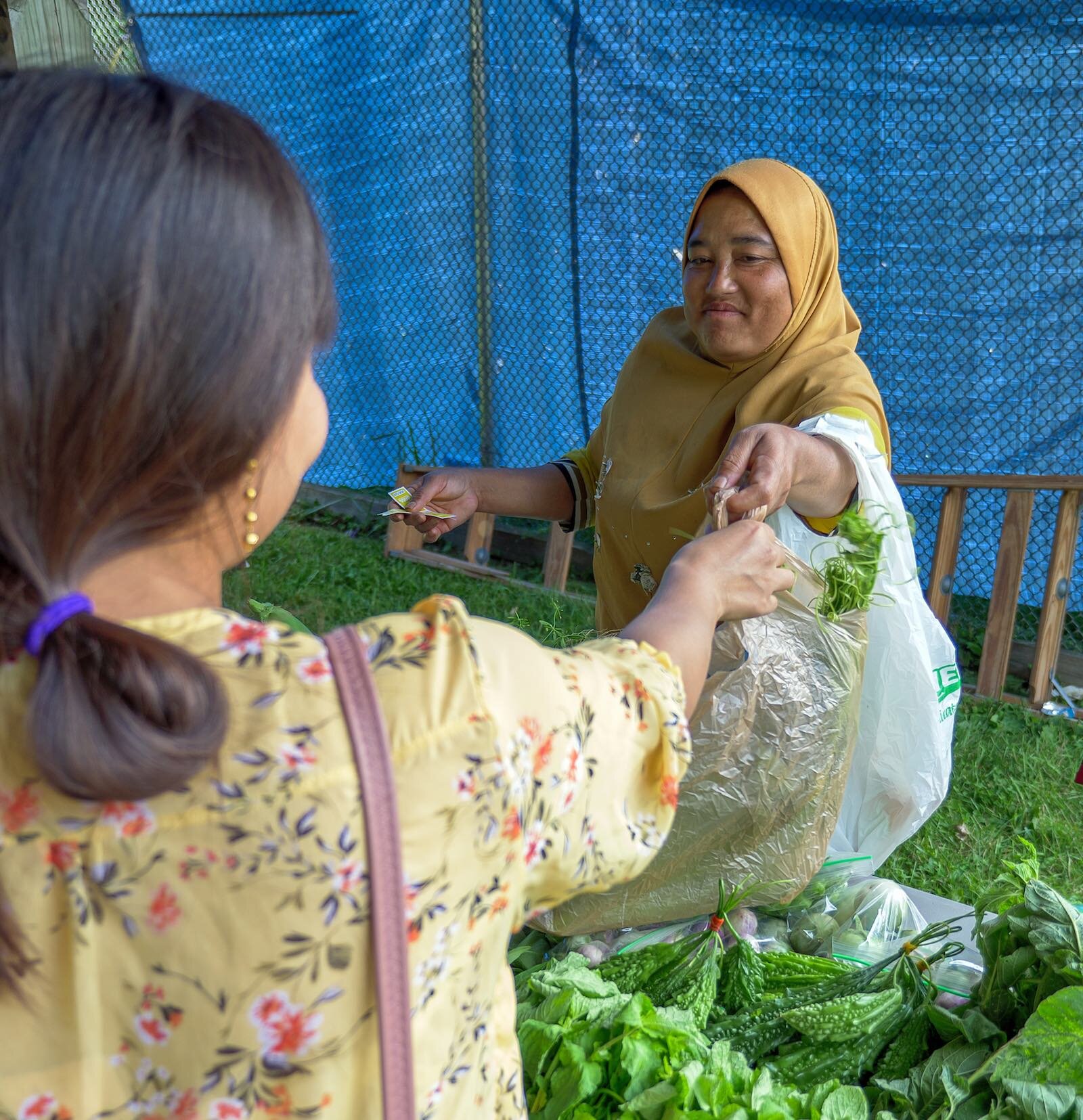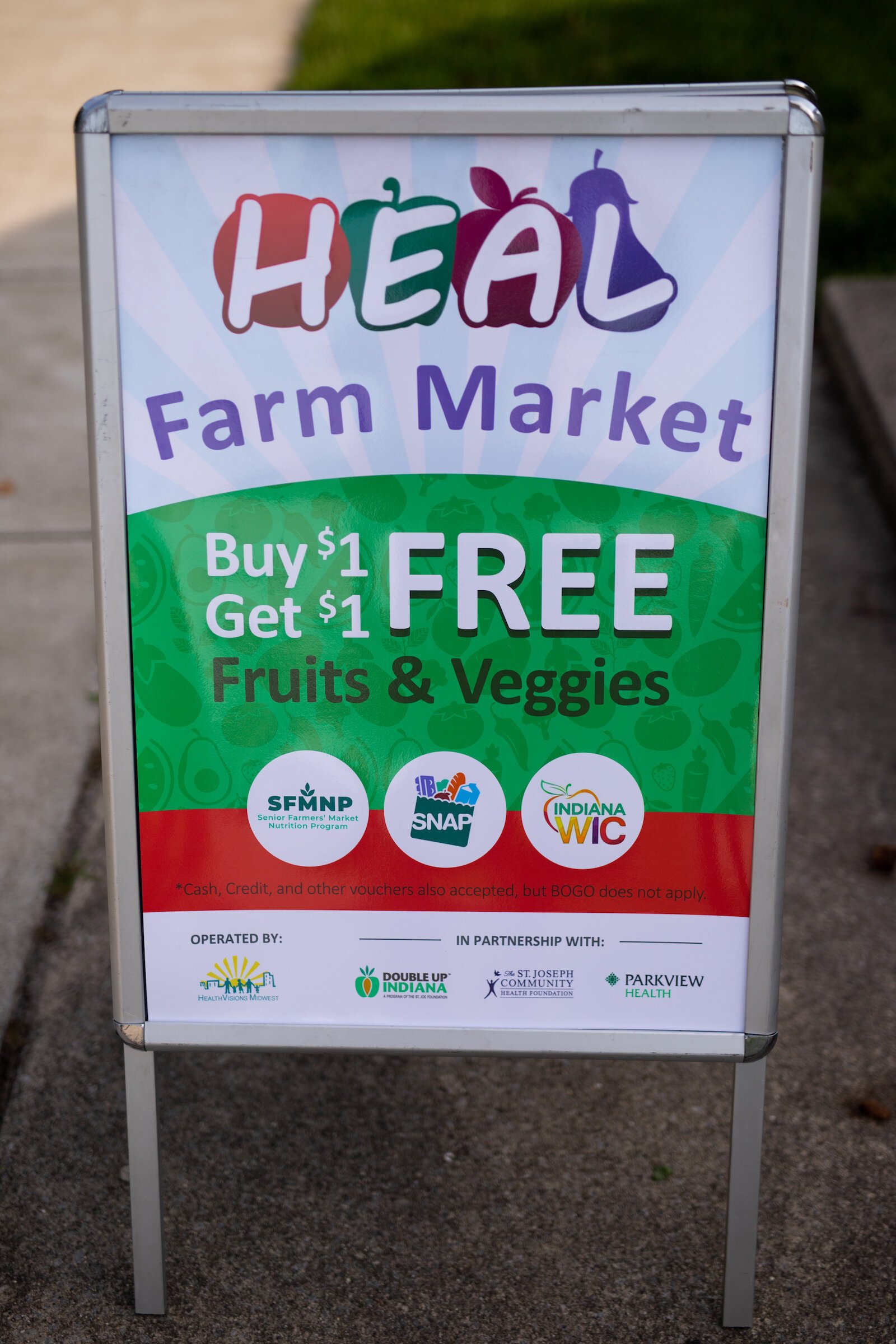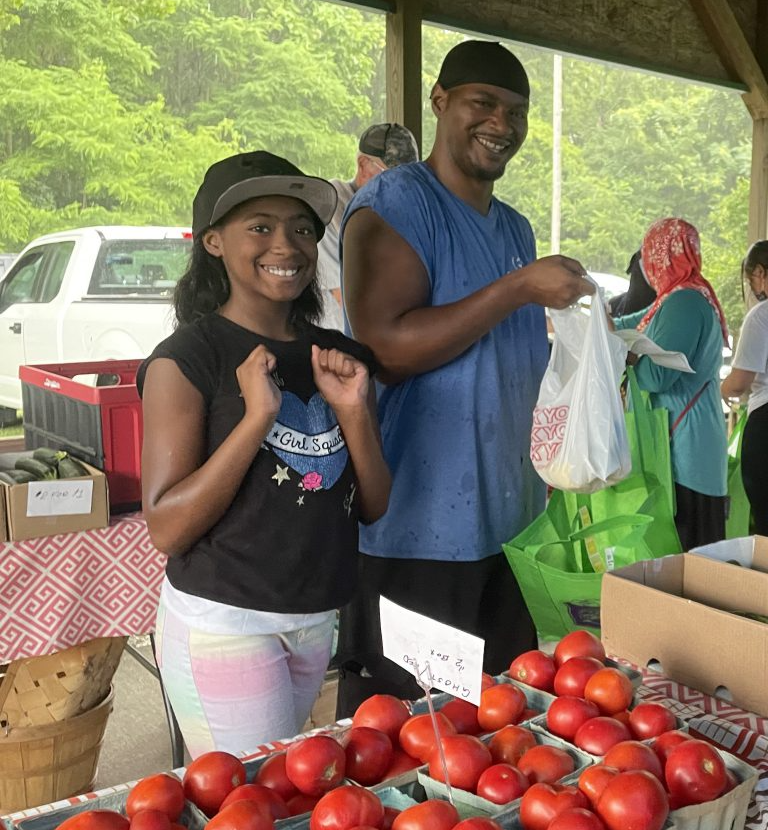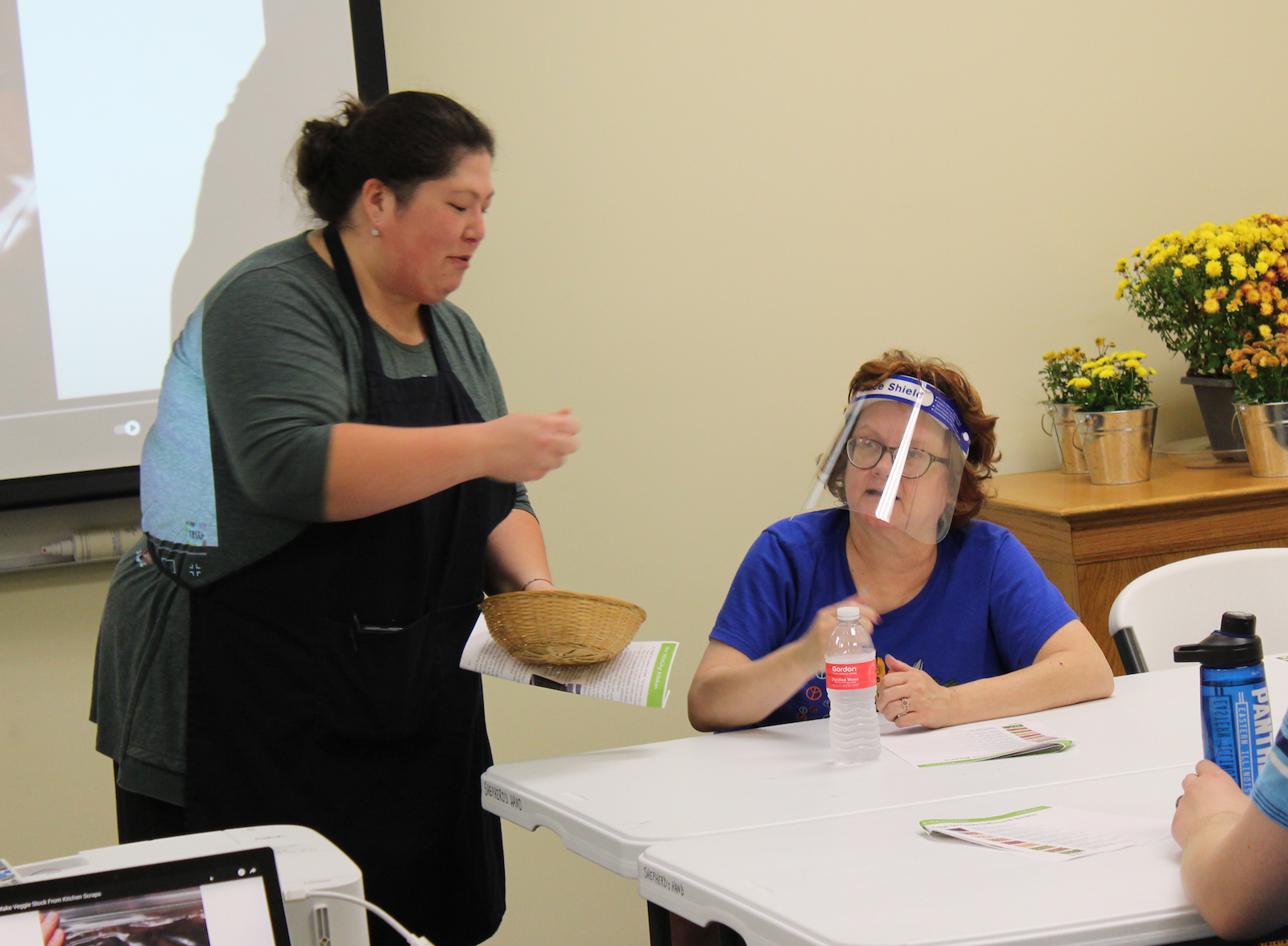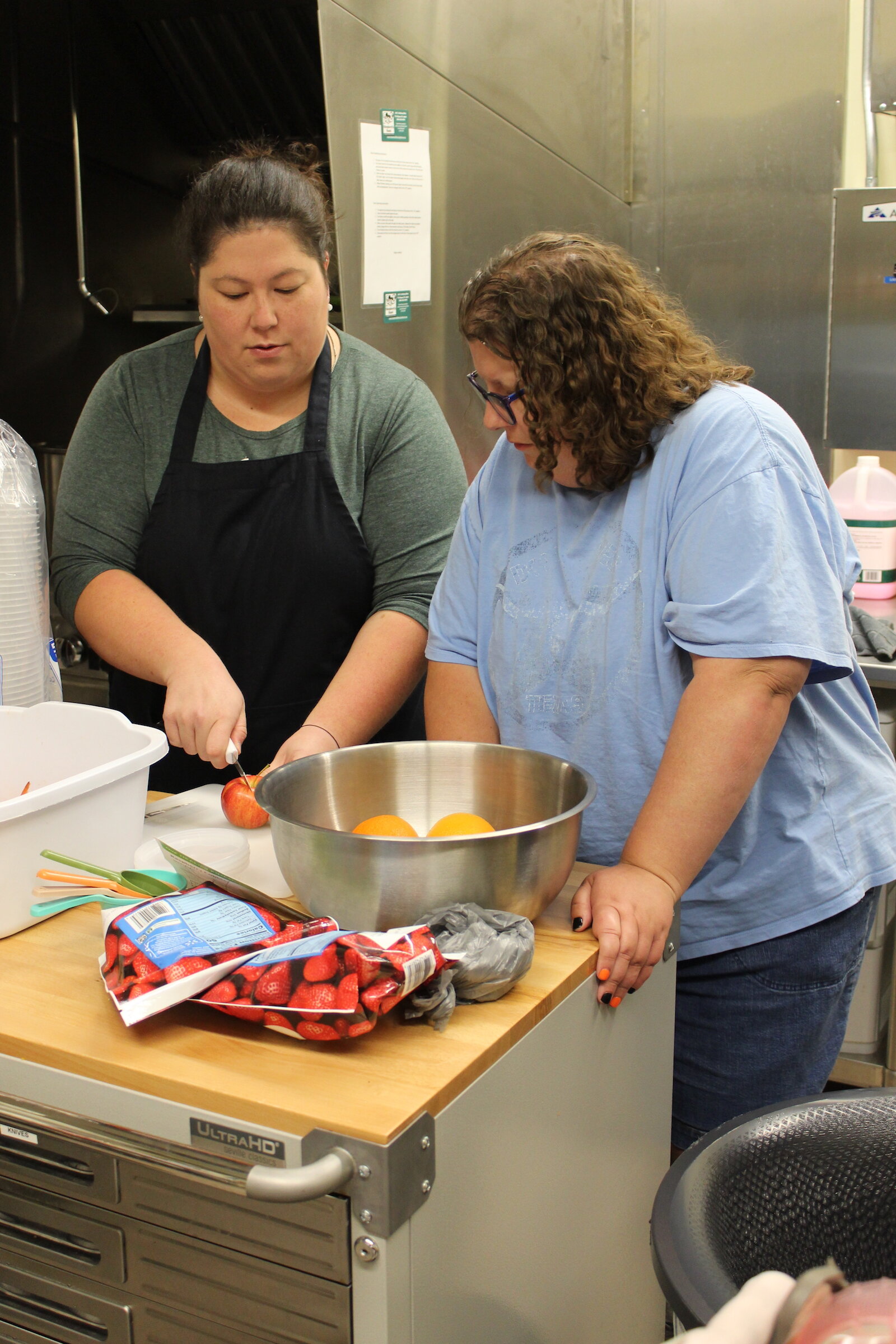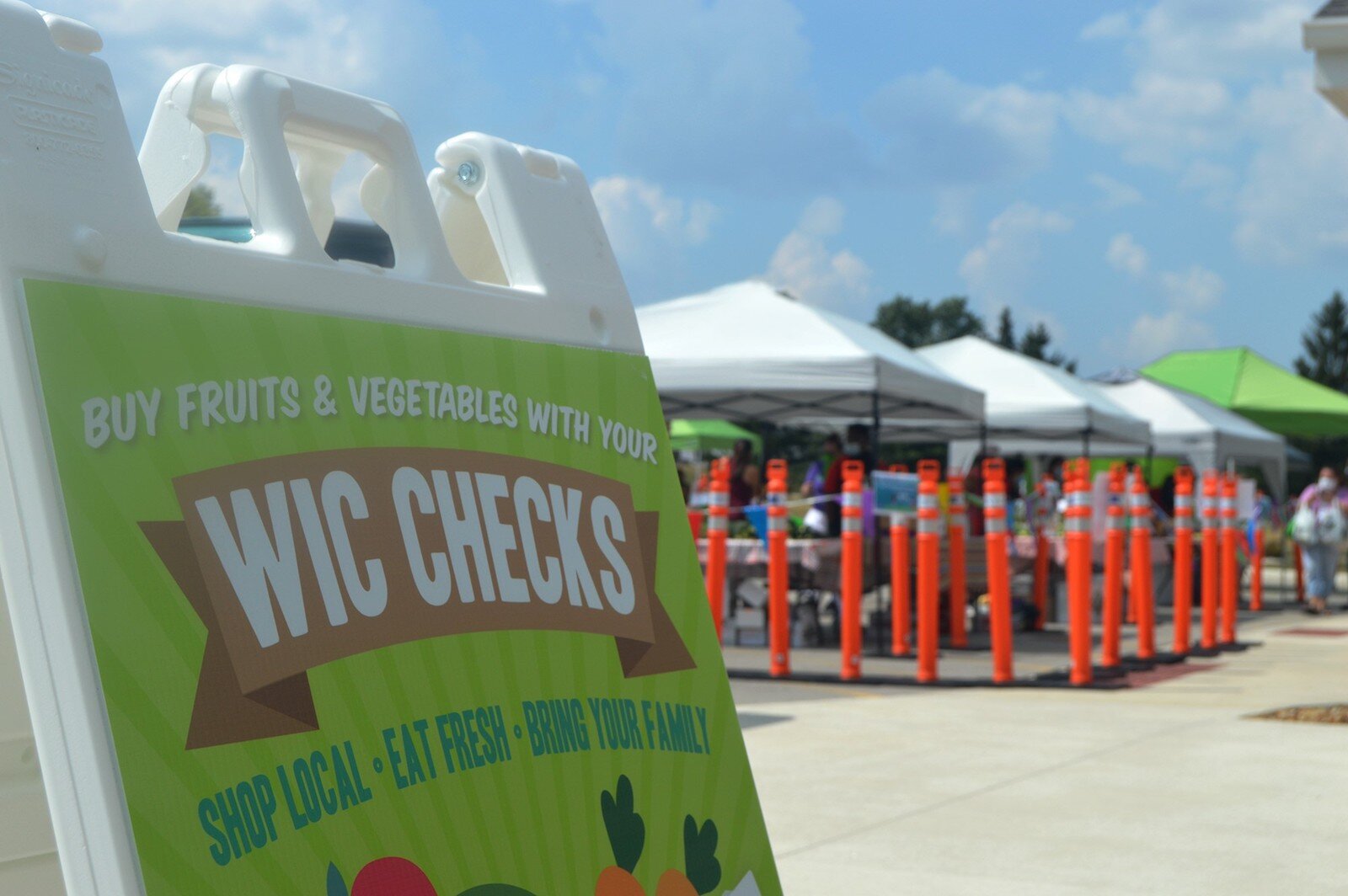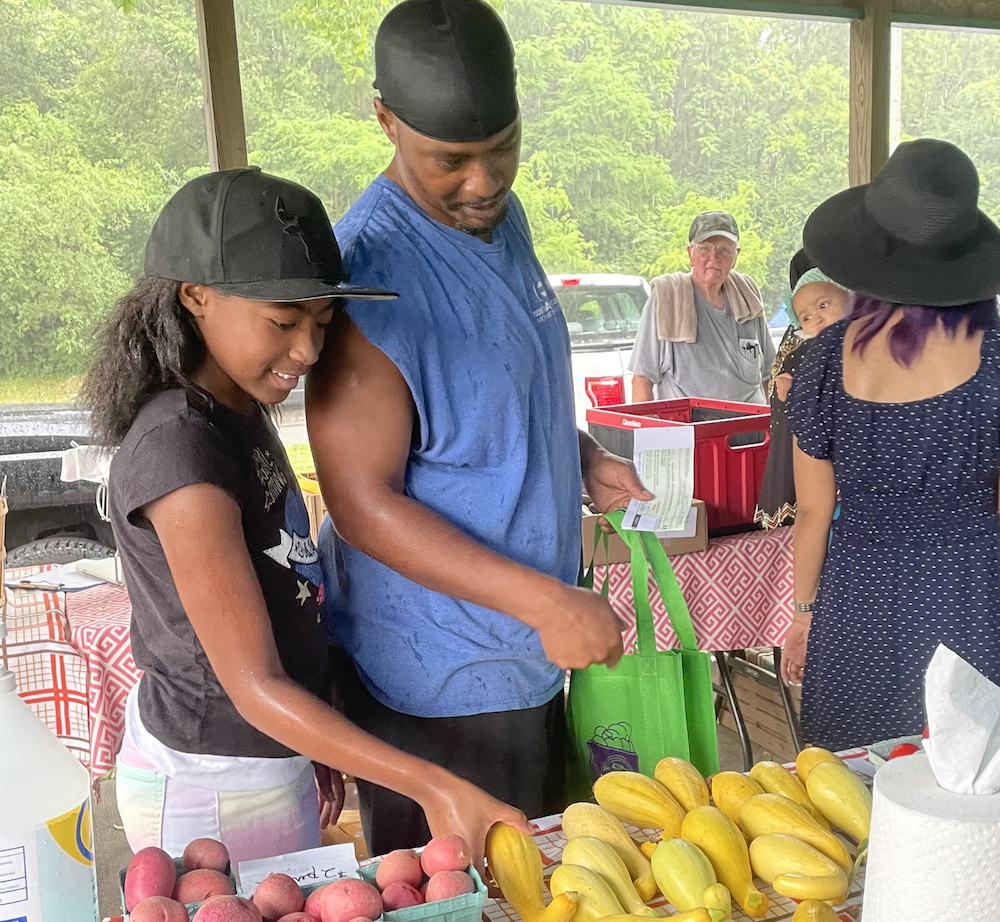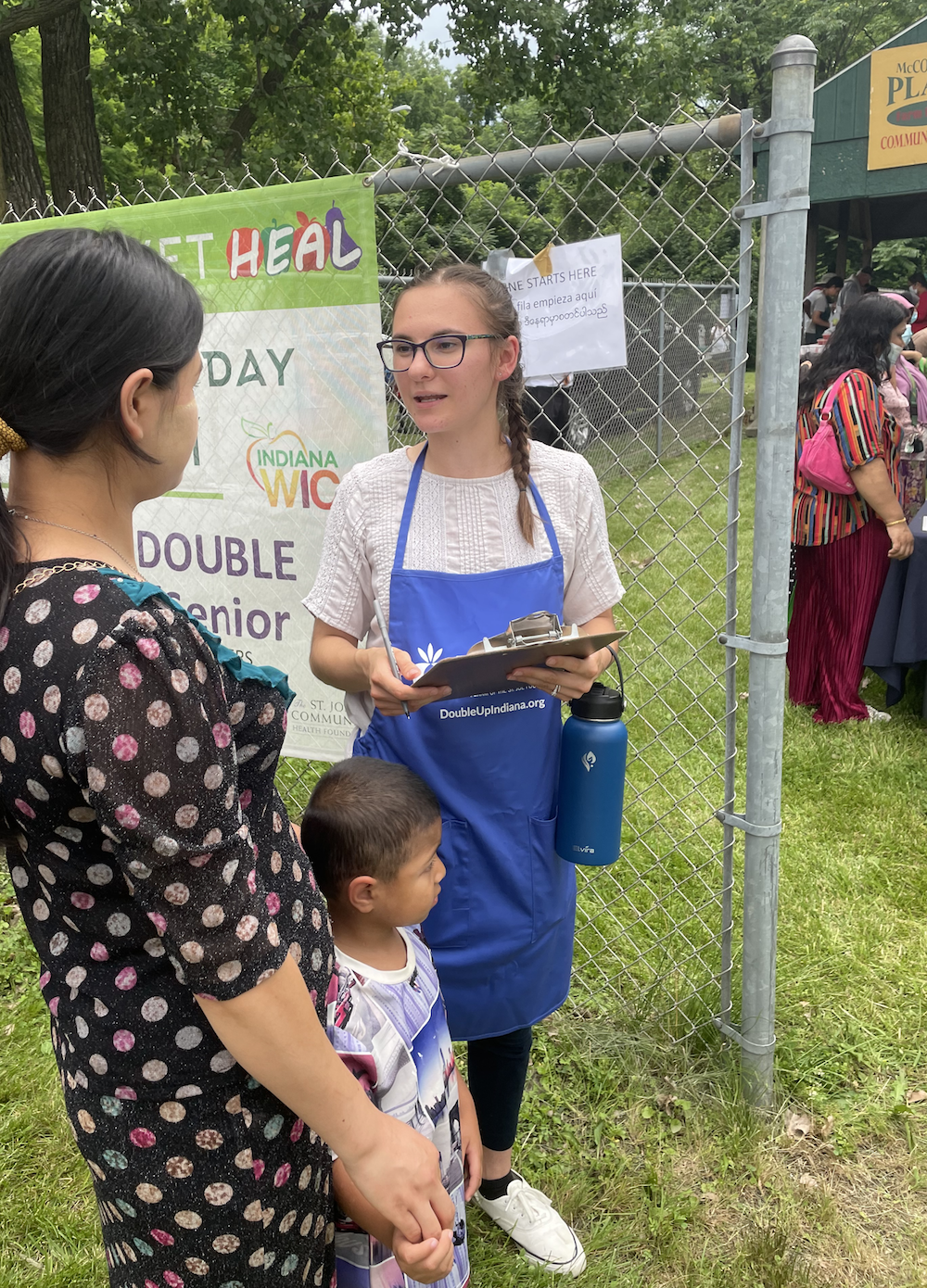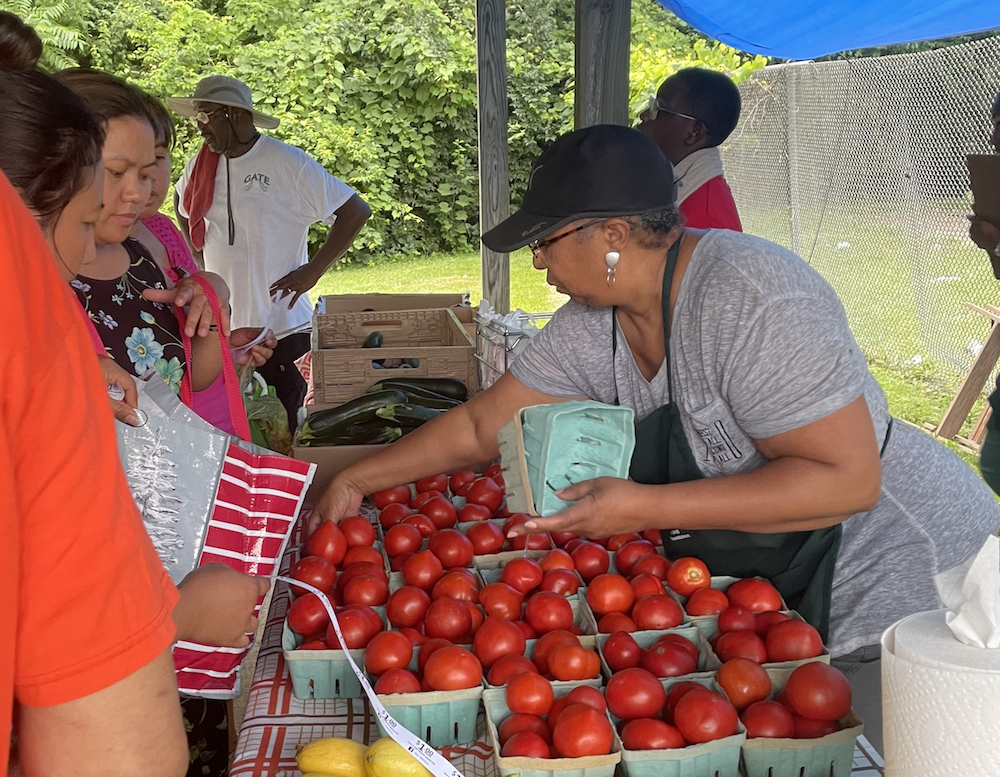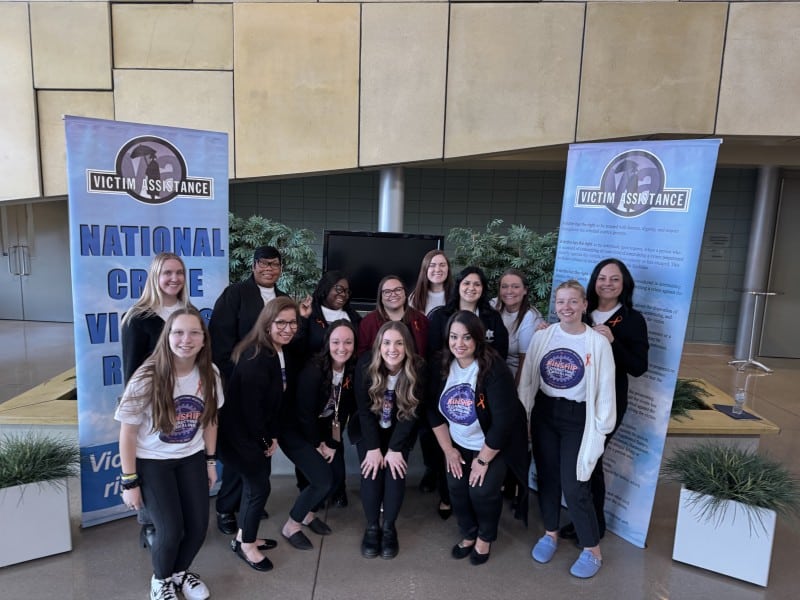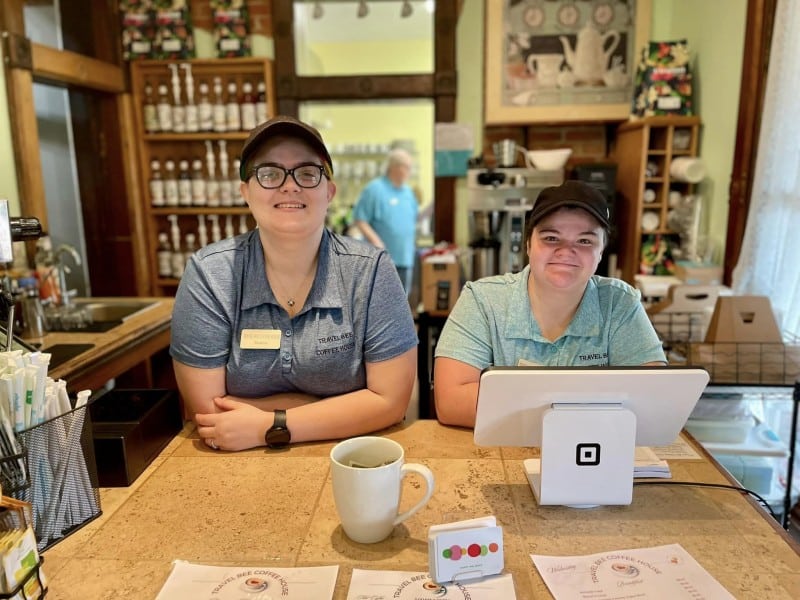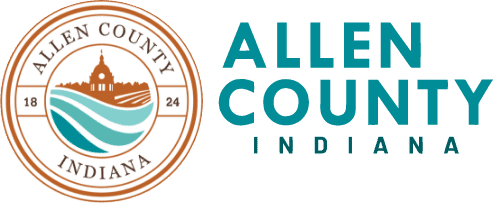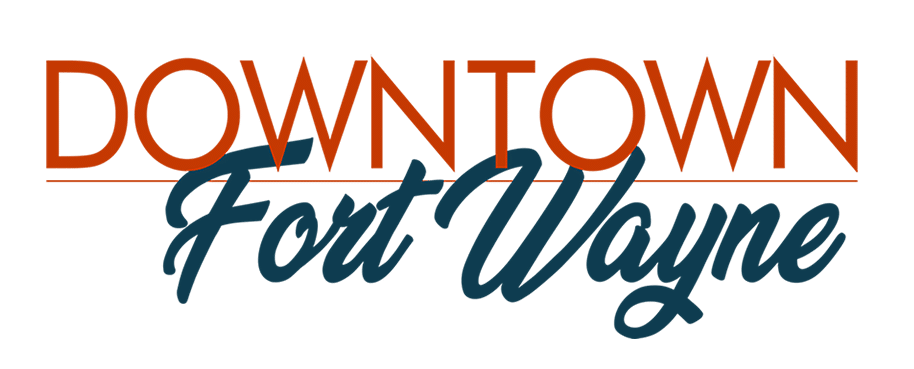Partner Partner Content Special Report: Parkview Health’s initiatives to address food insecurity
“We want everybody in the community– regardless of where they live, their income level, their age, race, ethnicity– we want everybody to have access to nourishing foods.”
This Special Report was made possible by Parkview Health.
For many families, food insecurity isn’t just about not having enough to eat. The challenge of food insecurity more often stems from socioeconomic and environmental factors like experiencing financial hardships or limited access to stores selling nutritional food options.
In 2021, the USDA revealed around 37,950 individuals faced food insecurity within their households in Allen County. A lack of consistent access to nourishing meals can trigger a domino effect of health adversities. From heightened vulnerability to chronic ailments like diabetes and hypertension to the compromising of the body’s immune defenses, food insecurity reverberates through physical and mental well-being, spotlighting the critical intersection of nutrition and health.
In Northeast Indiana, Parkview Health is working to address food insecurity, through programs that teach people about nutrition and connect them to resources that can help them access food.
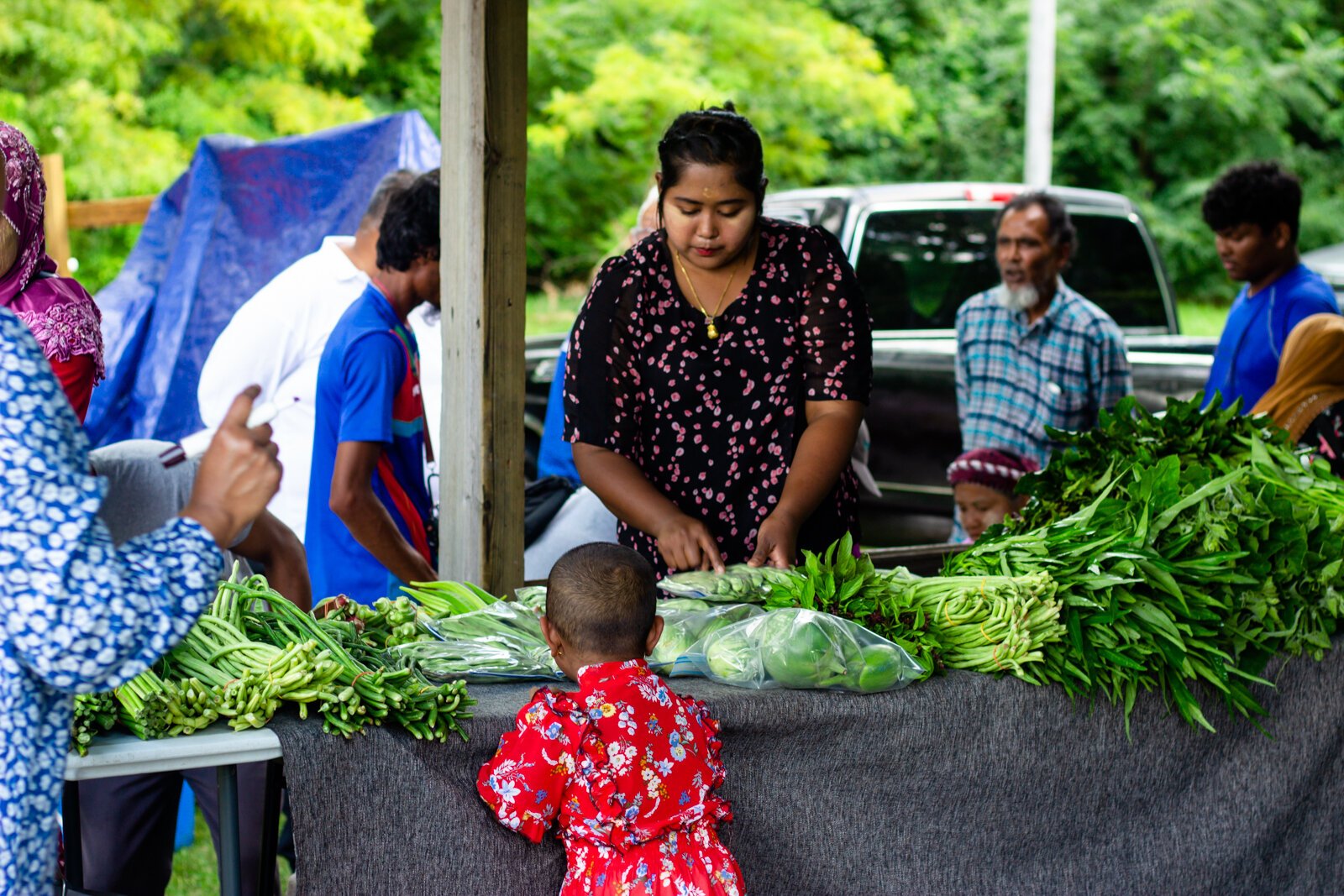
Parkview Health’s broader food access efforts have gained momentum with a multifaceted approach. Their mission began with initiatives such as the HEAL (Healthy Eating Active Living) Initiative (including the HEAL Farm Markets and Our HEALingKitchen Curriculum), created in partnership with the St. Joseph Community Health Foundation, as well as the Parkview Community Greenhouse and Learning Kitchen, and the VeggieRx produce prescription program.
Lead Community Outreach Dietitian Michelle Bojrab-Wray says the journey started with the HEAL markets at McCormick Place Apartments.
These farmer’s markets, located at strategic points throughout the city, not only accept SNAP and WIC benefits but also help stretch shoppers’ dollars even further with the added benefit of the DoubleUp produce incentive.
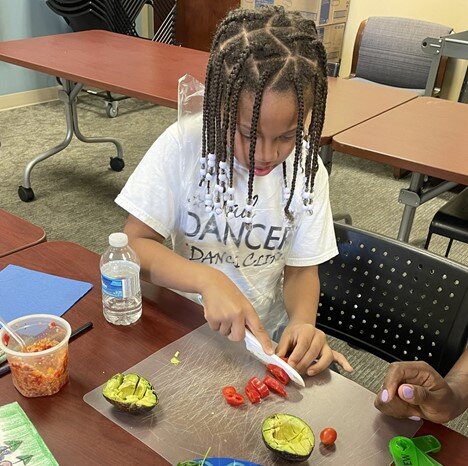
In partnership with The St. Joseph Community Health Foundation, the USDA, and the Fairfood Network, DoubleUp Indiana offers a dollar-for-dollar match on the purchase of fruits and vegetables at participating retailers and markets.
“What’s really neat is a lot of that money is put back into local farms and our local economy,” says Andrew Bourne, FAST Program Coordinator.
Parkview’s food access efforts have expanded to include an array of classes for both adults and children. Classes are available through the Parkview Community Greenhouse and Learning Kitchen, as well as the Parkview Center for Healthy Living.
Additionally, through food delivery programs, like FreshFoods4Youth, Parkview has been able to deliver food to over 40 families with transportation barriers. To date, over 145 students identified as food insecure are now receiving food, and over 300 students are participating in health education.
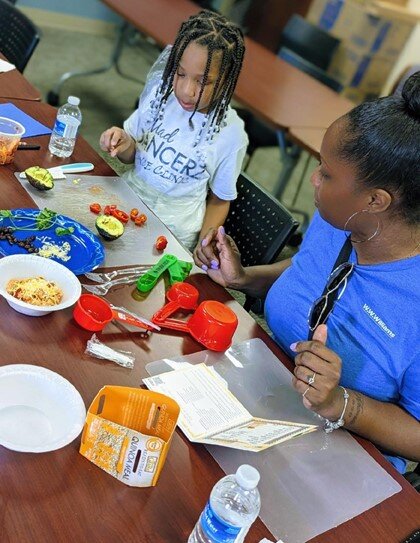
In an ongoing endeavor to address food insecurity, Parkview Health has recently helped to introduce two new initiatives, The FAST Program and The Pontiac Street Market, which will help continue to create a positive impact on food access and education within the Fort Wayne community.
The Food Assistance and Support Team (FAST) Program
Parkview’s Food Assistance and Support Team (FAST) program was created to help navigate and assist in solving problems related to food insecurity by connecting individuals, healthcare providers, and community-based food assistance programs.
Bojrab-Wray says the program was born out of the need to help underserved community members find healthy food options amid the pandemic’s challenges.
“We knew that if it was hard for us (food and nutrition professionals) to keep up with changing locations and requirements for food resources, it would be even harder for community members,” she says.
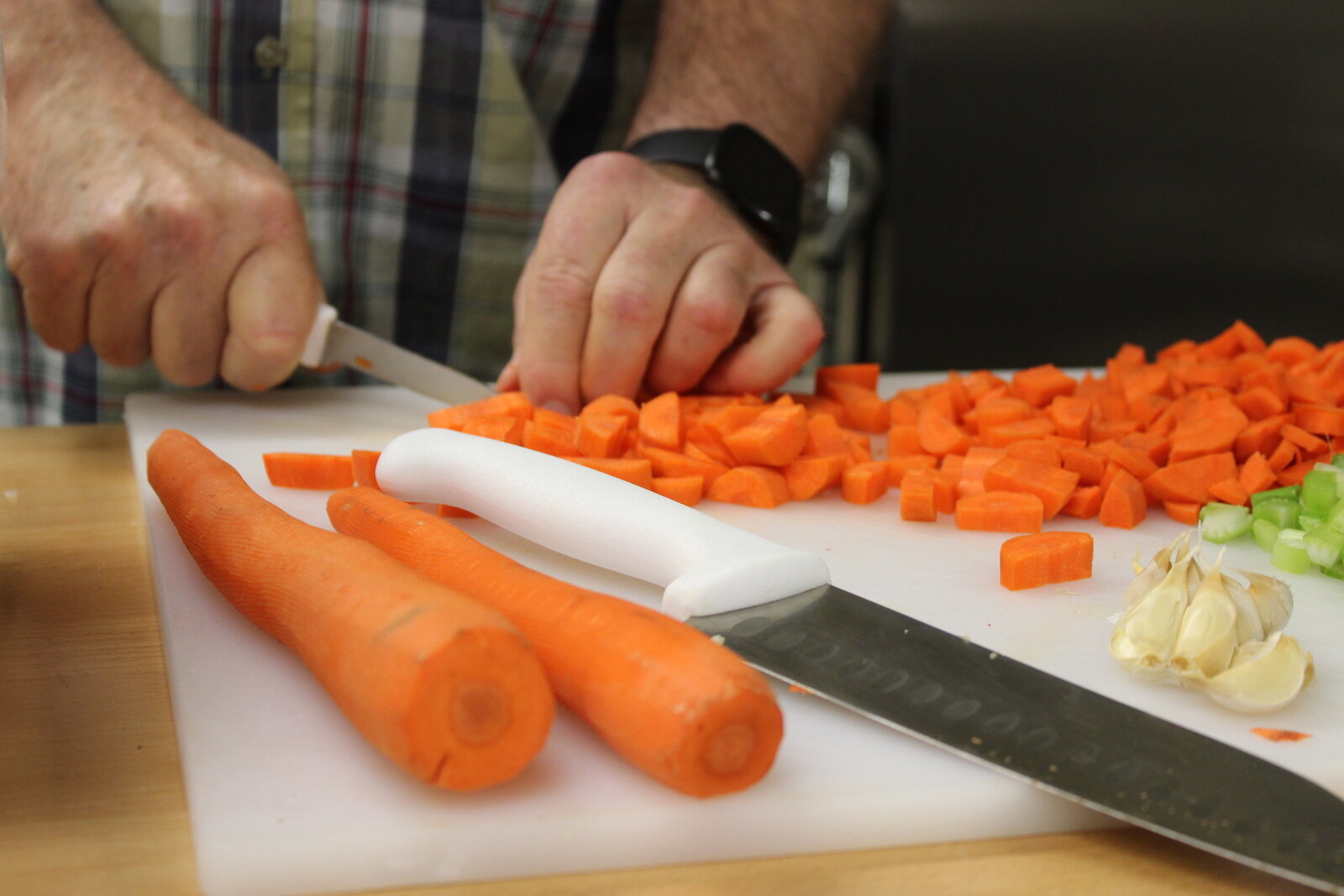
Although there are numerous resources throughout Allen County, many people either don’t know about them, don’t know how to access them, or even that they may qualify. That’s where the community health workers from the FAST Program come in.
Once an individual or family is identified as food insecure, they will be partnered with a community health worker who is tasked with connecting the clients to the existing programs that will best aid them.
“We know everybody is different and that everybody has different needs, so it’s not a one-size-fits-all program,” says Bojrab-Wray. “FAST allows us to be the experts in those resources and navigation tools and walk alongside and connect patients to the appropriate resources.”
According to Parkview Health, the FAST program has helped over 190 individuals so far.
Bojrab-Wray says one of the unique attributes of the community health workers is that they will be SNAP authorized, which had not been previously done within the health network.
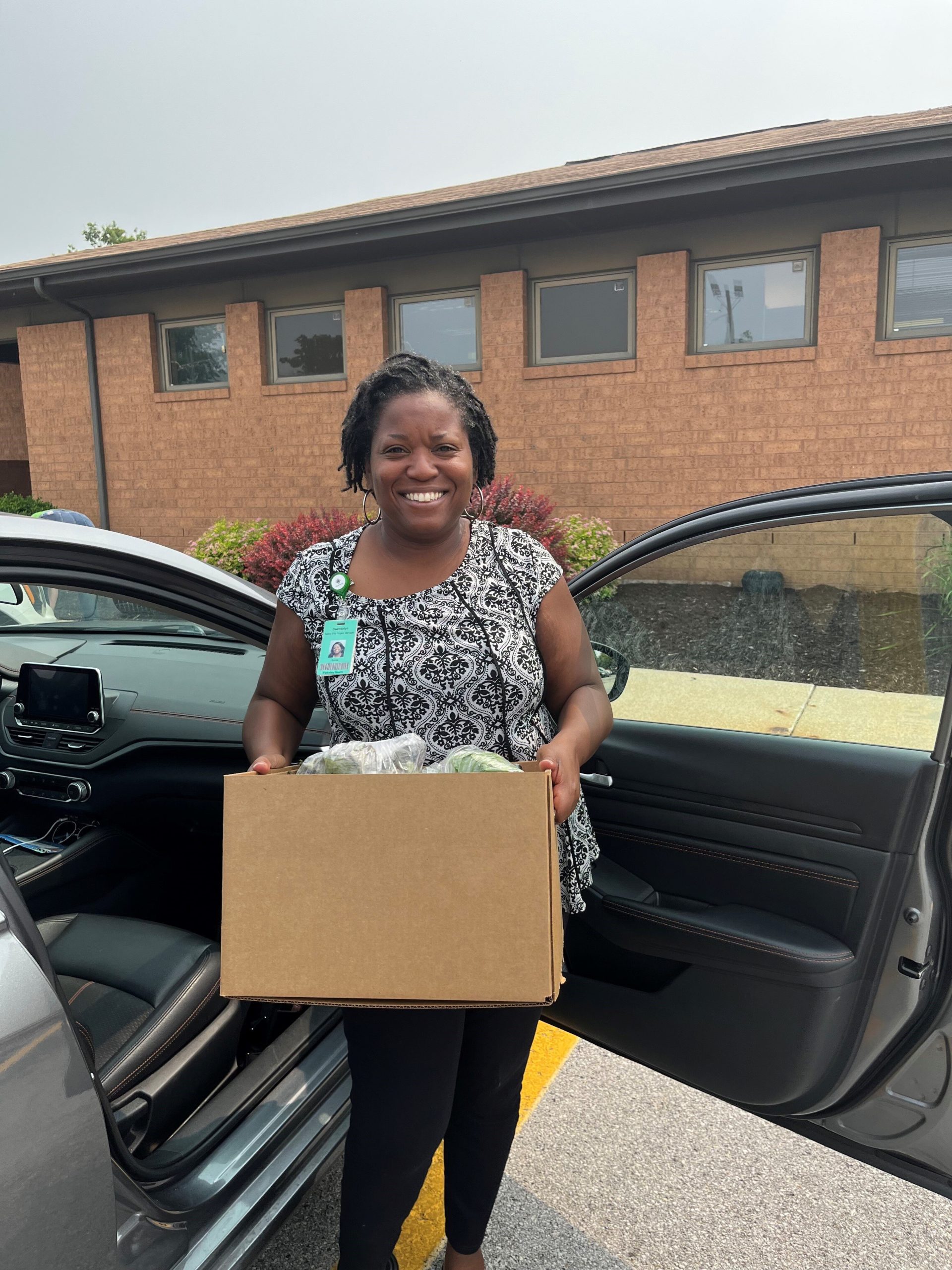
“We’re not just asking clients if they have applied for SNAP, we’re helping them apply, and providing further education on how to utilize and maximize the benefits of that resource,” says Bojrab-Wray.
Even with the assistance of FAST, depending on an individual’s needs, becoming food secure can be a long and drawn-out process. Bojrab-Wray says they’ve found that many community members’ needs go beyond obtaining nutritious food and into other social determinants of health, including housing.
“We have had clients say, ‘Well, it’s not just about my food access, but it’s also about my housing. Can you help me with that?’” says Bojrab-Wray. “We do try to connect them to resources that we know of. We don’t just refer to internal resources.”
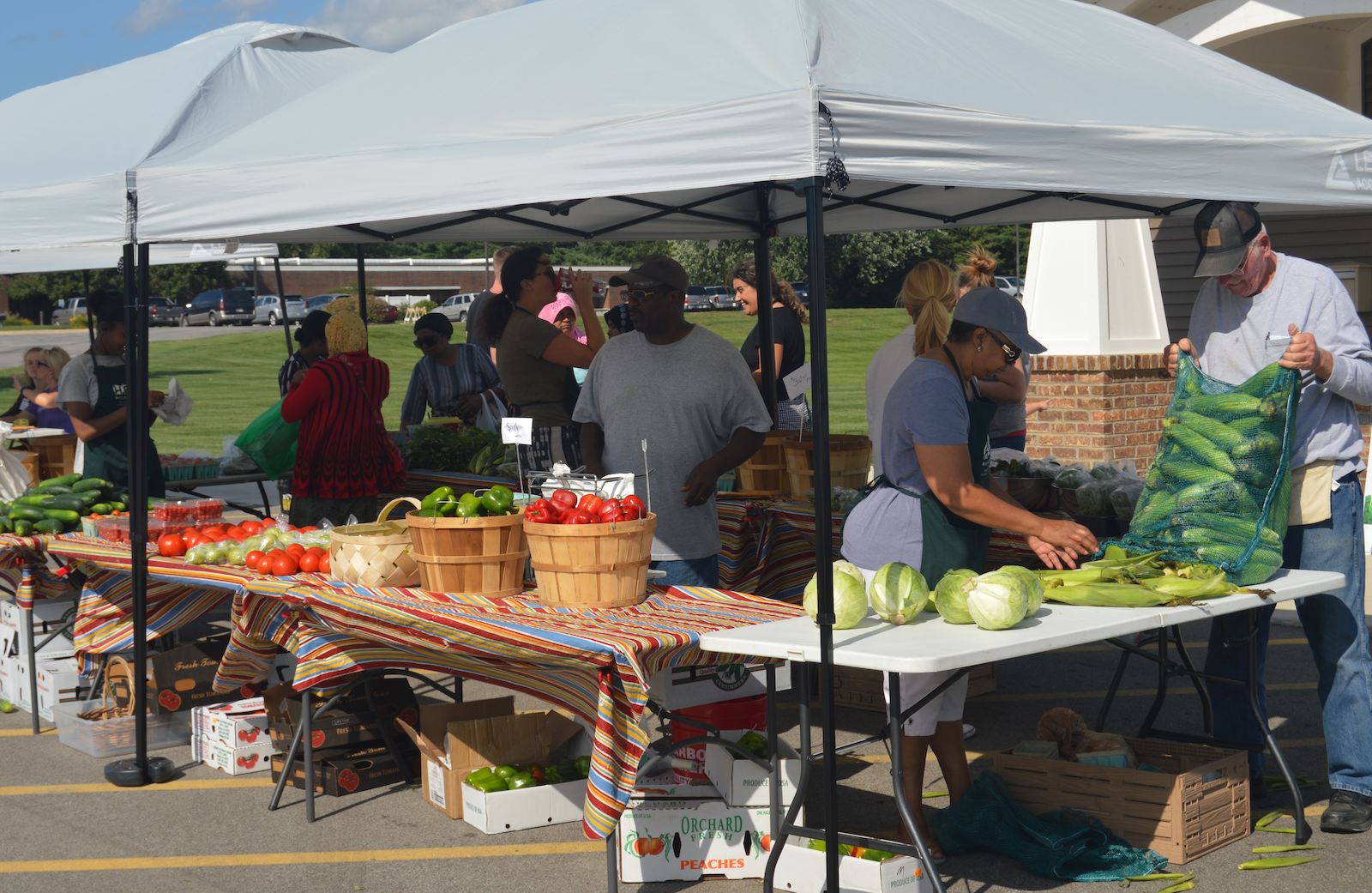
Although FAST’s primary aim is to eliminate food insecurity, Bojrab-Wray says Parkview realizes the community’s needs don’t stop there and aspires to address all social determinants of health with a similar model.
Pontiac Street Market
In December 2022, the City of Fort Wayne and Parkview Regional Medical Center and Affiliates announced they had joined together as community partners to create The Pontiac Street Market, a full-service grocery store that will provide healthy and affordable food options for Southeast Fort Wayne. It’s set to open its doors in November of 2023.
The Southeast Strategy Update identified the market as a top priority in its development plan due to the area’s significant health and nutrition disparities among residents. Research published in the Southeast Strategy Update found that “Diabetes and obesity are both 50 percent more common in Southeast adults (18+) compared to adults elsewhere in the city.”
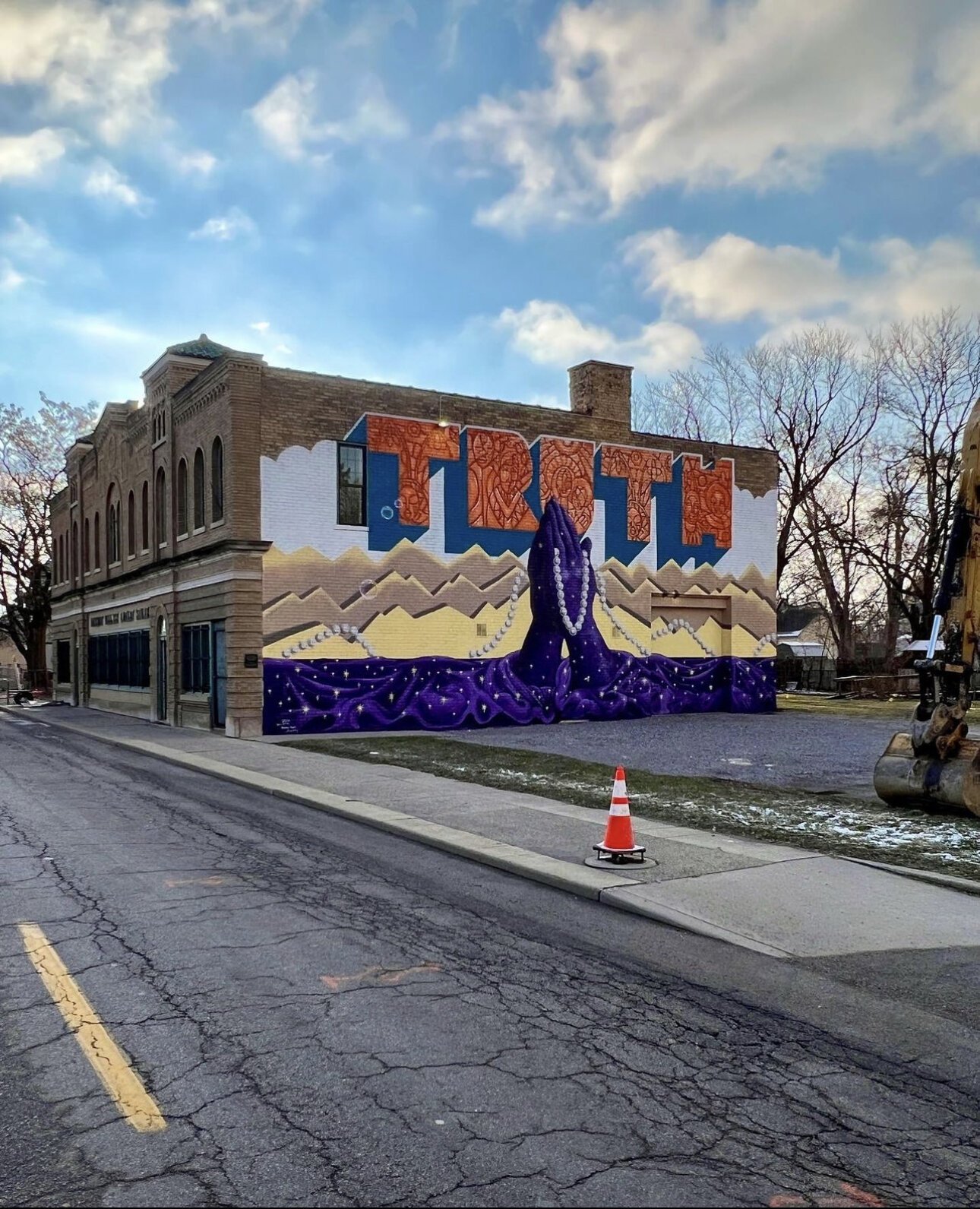
“The environment that our patients live in determines their health in a lot of ways, more so than even going to a clinic or seeing a doctor,” says Dr. Sarah GiaQuinta, Parkview’s senior vice president of Community Health and Equity. “Those social drivers of health are so impactful when we think about health outcomes such as diabetes and hypertension.”
Lacking access to grocery stores, individuals in food deserts often resort to convenience stores which typically lack nutritious options, and have inflated prices, pushing them toward unhealthy packaged foods and fast food, ultimately worsening their diet and overall health outcomes.
GiaQuinta highlights the significance of the Pontiac Street Market, explaining that it’s not just about groceries; it’s about creating a community-centered space that offers fresh produce and groceries with sustainability in mind. Additionally, it will act as an avenue for nutrition education, bridging the gap between available resources and their effective utilization through classes, tastings, and community engagement.
“It’s essential that the grocery store feels like it belongs to the community. Michelle is working very closely with the manager of the market and other members of the community to make sure that we have the right products and that we are offering them everything that they need,” says GiaQuinta.
This initiative not only offers nourishing produce but also symbolizes a shared commitment to uplifting the community, addressing health disparities, and empowering individuals to make healthier choices.
“We want everybody in the community– regardless of where they live, their income level, their age, race, ethnicity– we want everybody to have access to nourishing foods,” says GiaQuinta.
To learn more about Parkview resources, click here.
This Special Report was made possible by Parkview Health.

